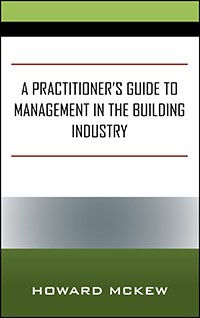In my January 2011 column, I discussed the importance of a project design team sincerely and open-mindedly requesting input and feedback from the owner’s operation staff during the design process. By participating in design planning meetings and articulating preferences with respect to system types, equipment selections, and control sequences, the future operations professionals have an opportunity to contribute their real-life, in-the-trenches experiences to benefit a new construction or major renovation project. This month, I am going to cover what can happen at the end of construction if the design engineers have not incorporated reasonable and affordable facilities staff requests into the project requirements and how that impacts the commissioning process.
In my experience, this scenario is only likely to happen on projects for large institutional facilities with smart and conscientious in-house facilities engineering departments. These facilities operators know their buildings, systems, priorities, and what works best for them better than anyone else, and that’s how they feel about it. When they see a project design requirement which they believe will not work, typically based on past experience, that is the beginning of a major challenge for the commissioning professional. When that requirement was specifically objected to by the operations team during design, you know there’s going to be trouble.
It is not uncommon for us to hear the following comment from the owner’s operations staff: “We’ll be changing that after the project is over.” At this point, the issues are most often control system sequences of operation. This results in a conundrum for the commissioning professional hired by the owner to confirm that the systems function properly and are accurately documented at the end of construction.
- Does
the commissioning professional press on to demonstrate compliance
with the design requirements, knowing that work may be of diminished
value when the owner changes the system operation after accepting the
building?
- Does the commissioning professional help the owner push for changeorders to achieve the preferred facility operations system performance?
The appropriate answer is project-dependent and owner-dependent, but it is something the commissioning professional needs to proactively evaluate and work with the owner to decide. The following are some considerations that will influence the decision.
- Changeorders will come with a financial and schedule cost at the
end of construction. If the owner’s project manager’s main
priority is an on-budget/on-schedule project, the operations
department may need to defer their modifications until after
accepting the systems as designed.
- Pushing for changeorders at the end of construction is similar to
directing the design engineers during design to do something the
design team does not believe is right. The owner risks confusing the
liability issue if things don’t work in the end.
- If the project is not following strict, traditional
design/bid/build protocols, it may be simpler to incorporate changes
late in the project. Controls contractors, in particular, may be
willing to modify their work based on verbal or casual written
requests from the owner. However, this can also mess up the liability
trail and risks incomplete/inaccurate as-built
documentation.
- There is the
possibility that if the systems are commissioned as designed and
function well that the operations staff may be convinced that the
systems are okay.
- If commissioning
of the systems as designed is completed and fully documented as part
of the project, can the owner engage the commissioning professional
in the process of modifying the controls after building acceptance?
Commissioning of the modifications could help ensure that whatever
changes the owner makes don’t affect the performance of other
integrated building systems.
- Should the final commissioning report and/or systems documentation prepared by the commissioning professional be deferred until the owner has completed their modifications so that the documentation can be as accurate as possible? This seems imperative if the owner values the systems-level documentation inherent to a professional commissioning process.
As with most things related to commissioning, it is preferable to have these issues resolved to the owner’s satisfaction before arriving at the end of construction. That is one of the purposes of design-phase commissioning, but it is not uncommon to have commissioning or owner design review comments linger into the construction phase only to become major issues at the end. Everyone on the project team needs to be aware of the risks associated with not fully resolving outstanding owner concerns in a timely fashion.ES







